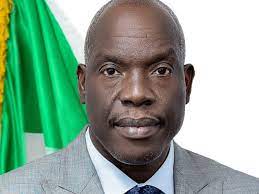The Nigerian Upstream Petroleum Regulatory Commission (NUPRC) on Wednesday relaunched Nigeria’s 2024 licensing round at the Invest in African Energy forum in Paris, thereby opening new opportunities for investors to explore the investment benefits of the nation’s hydrocarbon resources industry in terms of returns.
It would be recalled that the 2024 licensing round was launched early this month. The latest licensing round features 12 deep offshore and shallow water blocks oil blocks – including 5 blocks from last year’s round – and is available for bidding through January 2025. Nigeria is seeking to attract local and international explorers to its acreage, with a view to increasing its reserve base and maximizing production.
Commenting on the initiative, NUPRC Executive Commissioner, Dr. Kelechi Ofoegbu, said: “Each block has been chosen for its potential to bolster our national reserves… We are committed to conducting the licensing round in a fair, competitive and transparent manner and ensuring a level playing field for indigenous and international investors-”
With the launch, Nigeria is seeking to accelerate upstream investment as the Federal Government is currently implementing tax credits for non-associated gas greenfield development and commercial incentives for deepwater oil and gas projects.
Already, leading operators including Shell, TotalEnergies and Chevron have pledged billions in developing the country’s oil and gas supplies, including onshore and marginal field opportunities for local and junior explorers.
In his remarks, Managing Director, Platform Petroleum, John Amin, said: “The activities of investors in oil and gas are no longer done in such a way that the environment is impacted negatively… Owners collaborating with operators to ensure that activities are carried out seamlessly is a testament to the new investment drive in Nigeria.
Similarly, another industry expert and Senior Partner & Head of Analysis, Rystad Energy, Per Magnus, explained: “There are a lot of opportunities onshore for local entrepreneurs. The regulatory framework –having a $2 fee on flaring and a $3.4 price on local gas – will enable local entrepreneurs to turn into gas producers. That’s an area of small, but very profitable investments – wells can be drilled with triple digit returns.”
Executive Secretary, African Refiners and Distributors Association, Anibor Kragha, spoke about the company’s investment priorities thus: “On the downstream side, we are looking at where investments can be segmented – it’s not just refining, but also ports, terminals, pipeline infrastructure, CNG fleets, LPG and so on. The goal is to develop a robust intra-African oil and gas industry whereby we can balance energy security with energy transition.”
Apart from the current efforts by the Federal Government to drive upstream exploration, Nigeria is prioritizing the expansion of its downstream sector, having recently launched several large-scale projects aimed at enhancing energy security and oil refining and gas processing capabilities.
Some of these projects include the Train 7 expansion project at the Nigeria LNG plant – increasing Nigeria’s LNG production capacity to 30 million tons per year by 2027 – as well as the 650,000-bpd Dangote Refinery that came online at the start of this year, creating a sizable new domestic market for the nation’s crude oil production.






